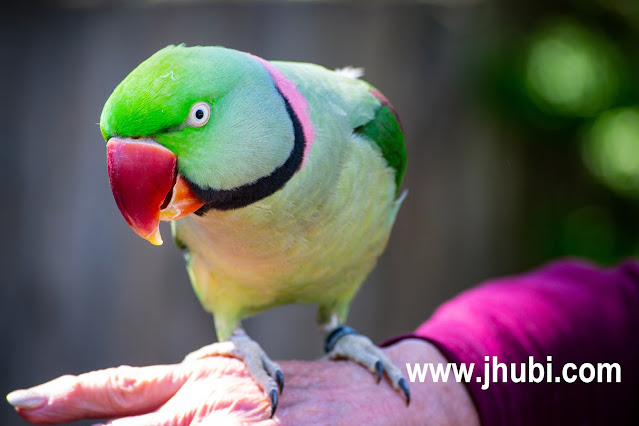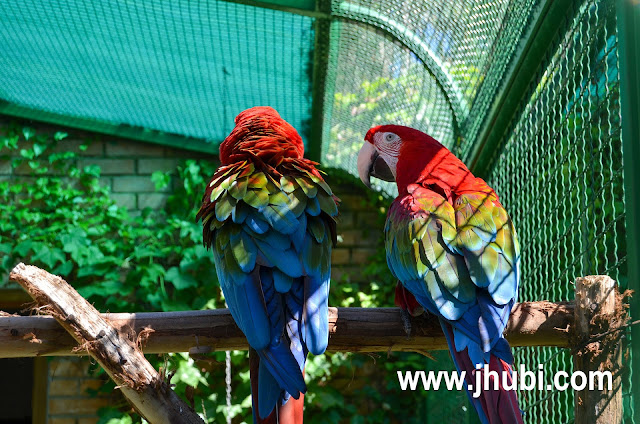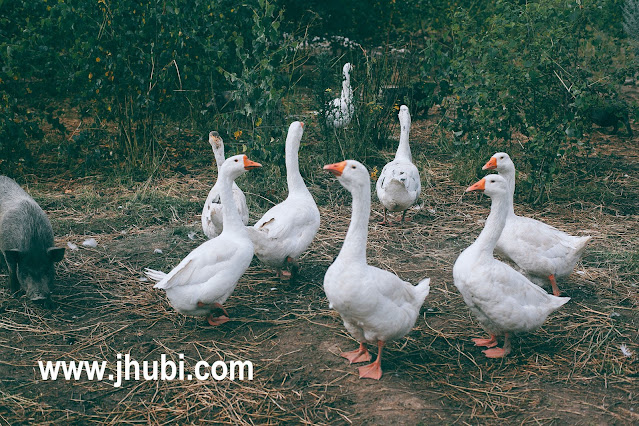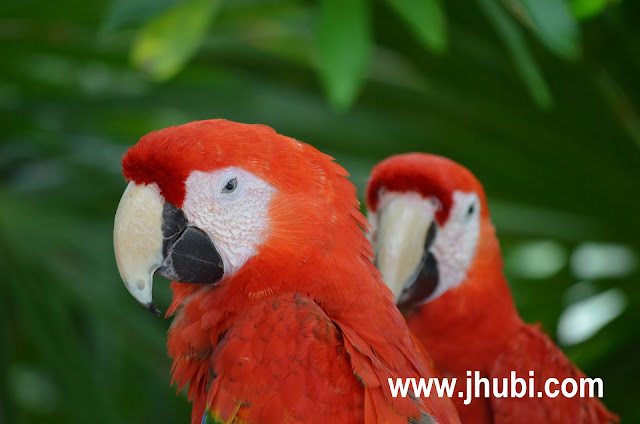Introduction:
Companion birds can make wonderful pets, providing joy and companionship to their owners. However, owning a bird is not a decision to be taken lightly, as these small creatures require a considerable amount of care and attention. From understanding their natural behaviors to creating the right living environment, there are essential factors that every prospective bird owner should consider.
In this guide, we will explore the key aspects of caring for a companion bird as a pet, offering valuable tips and insights for beginners. We will discuss the importance of knowing your pet bird's background, the significance of its lifespan and social structure, as well as the critical elements of providing a suitable cage and proper nutrition. Additionally, we will delve into the crucial decision of whether to allow the bird to fly or clip its wings for safety.
Furthermore, we will provide information about different species of companion birds, helping potential bird owners make informed choices that align with their lifestyles and preferences. We will also highlight the care requirements of specific bird species, including popular ones like Budgerigars, Canaries, Cockatiels, Lovebirds, and Finches.
Furthermore, to support our readers in their quest to become responsible bird owners, we are excited to introduce "Jhubi Pet Point," a comprehensive online platform offering a wealth of information about pet bird care. From expert advice on nutrition and medical care to fascinating facts about various bird species, "Jhubi Pet Point" is your one-stop destination for all things avian. Our mission is to empower bird owners with the knowledge they need to provide the best care for their feathered companions, fostering a strong and loving bond that lasts a lifetime. Let us embark on this journey together, embracing the joys and responsibilities of bird ownership with open wings and open hearts.
Lifespan of the pet bird
Another factor to consider when getting a bird as a pet is longevity.
Companion birds can be rewarding companions, but this includes arranging for their care in unforeseen circumstances or even if they outlive you.
Pet birds should never be released into the wild, as they cannot fend for themselves and will fall victim to starvation, injury and predators.
Bird cage and feeding
Extremely important for birds is a cage with the right size and shape for the specific species.
In addition, daily cage cleanings, fresh foods such as fruits and vegetables, and frequent interaction and enrichment (including toys, games, and affection) are required in addition to a regimented schedule.
A bird cage should include toys, perches, cleanable surfaces and access to fresh water, as well as a surface or area for regular feeding.
In addition to a main cage, birds should also have designated areas throughout the home to interact with their humans.
. Burning Teflon from nonstick pans can cause respiratory problems and death.
Cut a bird or let it fly?
An important decision for bird parents is deciding whether or not to clip their wings.
Flightless birds can lead a fulfilling life in outdoor aviaries or if trained on a harness and leash. They can also fly within a house or room.
Flightless birds can also easily escape or break free outdoors, attracting predators, including dogs , cats, or outdoor animals.
If you choose to clip your bird's wings, this should initially be done by a veterinarian or a professional bird keeper. Trimming a bird's wings properly is not painful for the bird and should be done every 4-6 months.
Some well-known domestic birds
Bird Information
| Bird | Size | Cage Recommendations | Service life | Info |
|---|---|---|---|---|
| Budgerigar (also known as parakeet) | 15 to 20 cm | Long cage for flying and hopping | 10 – 12 years | Considered a “beginner bird”. They are small parrots. |
| Canary | 12 to 18 cm | Cage with closed bars to prevent clutter | up to 10 years | This is a hands-off pet. They come in more than 200 varieties and countless colors. |
| Cockatiel | 25 to 30 cm | Since they are foragers, they need a cage that allows them to search for snacks on the bottom or floor. | up to 20 years | They are very friendly parrots that can often learn to mimic whistles or speech. |
| Lovebird | 15 to 20 cm | They prefer to live in bonded pairs, but can be solo, with plenty of human attention. | up to 20 years | They are very active, like most parrots. |
| Finch | 10 cm | They need a large cage as a typical living situation is in groups of 3 – 5. | up to 10 years | Finches are generally not crazy about sitting on hands and should live in groups. |
| Large parrots such as cockatoos, Amazon parrots, African grays and macaws | Varies | For professionals or dedicated enthusiasts; long lifespan (30+ years) | Varies | Large parrots should only be kept by professionals or dedicated enthusiasts as they have incredibly long lifespans (30+ years), require hours of attention per day and can develop serious medical and behavioral problems if their needs are not properly met. These birds are very intelligent and strong. |
Owning a pet bird is a project to take seriously. It is important to consider a bird's daily care, routine, diet, health, socialization and longevity before purchasing one.
If owning a bird is too much to handle, consider purchasing a bird box/feeder or joining a bird watching group to enjoy the local wild bird species in your area.
A balanced diet for birds
A balanced diet is key to your bird's general health, immune system, longevity and joints.
Wild birds eat a variety of foods, including fruits, seeds, flowers and insects, which change with the seasons.
On the other hand, captive birds have completely different forms of exercise and caloric intake, and require a balanced diet that includes complete nutrition.
It is important to introduce your bird to a variety of whole foods, including fruits and vegetables, as early as possible.
If you adopt an adult bird, encourage them to change their diet to fresh food by offering it regularly and in lieu of other meals
Seeds are often fed to pet birds, but they are low in nutrition and high in fat, meaning they should be avoided or used only as a rare treat.
Many manufacturers create balanced diets for birds aimed at owners who don't have the time to make fresh food every day.
In general, be mindful of the content of your pet's diet and avoid salty, fatty and sugary foods.
Housing your bird
It is extremely important to find the right place in your house to house your bird.
Hazards such as power cords, other pets and a hot stove can pose a danger to your pet and a bird's enclosure should be set up in a safe place.
Alternatively, an outdoor aviary or bird room may be considered if space is available.
Flying birds should avoid ceiling fans, open toilet bowls and unmarked windows to avoid injury.
Your bird should be supervised at all times when he goes out of his enclosure to ensure his safety. If a door or window is opened outward, flying birds should be restrained securely.
Your bird should have a home base where they can sleep at night and return when they are nervous or hungry. This space is also a great place to encourage mental enrichment, with a rotation of toys to keep them interested.
There are several types of perches available for birdhouses and you should vary the diameter, shape and material of the perches to aid training and leg health.
Avoid perches made from coarse materials that can irritate the bottom of your bird's legs or metals that can damage their beak.
Various substrates can be used in the housing.
Bird toy tips
Birds, especially parrots, are highly intelligent animals and need tools to avoid boredom, behavior problems, and self-trauma (such as plucking feathers).
How to create a stimulating environment for your pet bird
Shredded toys: Household items, such as paper towels, cardboard rolls, phone books, and tissue paper, can be used as shredded toys.
Bird toys: Companies also sell a variety of different sized bird toys with different play styles.
Avoid: Coated materials, painted objects, soft metals, sharp objects or small objects that can be easily swallowed.
Keeping your bird healthy and happy
Having a happy and healthy bird includes feeding and entertainment at home, as well as monitoring for signs of illness.
Birds have high metabolisms and often eat low-fat diets, requiring numerous
A bird owner should know this
Feed your bird small meals throughout the day.
If your bird is eating less or infrequently, this is a cause for concern.
Monitor your bird's droppings for changes in color, consistency, or presence of all three components (feces, urine, and urates).
If any components are missing, discolored, or show an abnormal consistency, consult a veterinarian.
Avian medicine requires specialized training and equipment. Not every vet can evaluate, diagnose, and treat your bird.
Find a veterinarian in your area who can provide both welfare and emergency care for birds.
Seek emergency care if any of the above symptoms are observed.
You can also get information from these websites there links are given below
| News Channel | Website |
|---|---|
| National Geographic | https://www.nationalgeographic.com/ |
| BBC Wildlife | https://www.bbc.com/news/science_and_environment |
| BirdLife International | https://www.birdlife.org/ |
| The Cornell Lab of Ornithology | https://www.birds.cornell.edu/home/ |
| BirdWatching.com | https://www.birdwatching.com/ |
| The Audubon Society | https://www.audubon.org/ |
| RSPB (Royal Society for the Protection of Birds) | https://www.rspb.org.uk/ |
| BirdLife Australia | https://www.birdlife.org.au/ |
FAQS
What are some key factors to consider when owning a companion bird as a pet?
Owning a bird requires careful consideration of their natural behaviors, living environment, social structure, and proper care.
How long can companion birds live?
Companion birds can have significant lifespans, and it's essential to plan for their care in unforeseen circumstances or even if they outlive you.
What are the critical elements of providing a suitable cage and nutrition for pet birds?
Birds require a cage of the right size and shape for their species, along with daily cleaning, fresh foods like fruits and vegetables, and regular interaction and enrichment. A balanced diet is crucial for their overall health.
Should I let my bird fly or clip its wings for safety?
This decision depends on your bird's individual needs and your living situation. Flightless birds can lead fulfilling lives with proper care, while clipped wings may be necessary in certain situations for safety.
How often should I trim my bird's wings if I choose to do so?
Wings should be properly trimmed every 4-6 months, and it's recommended to have a veterinarian or professional bird keeper perform the procedure.
What should I include in my bird's cage for a safe and enriching environment?
A bird's cage should have toys, perches, cleanable surfaces, access to fresh water, and an area for regular feeding. Various perches and substrates can aid in training and leg health.
What should I feed my pet bird for a balanced diet?
A balanced diet should include a variety of whole foods, such as fruits and vegetables. Avoid feeding them seeds as their primary diet, as they are low in nutrition and high in fat.
How can I create a stimulating environment for my pet bird?
Providing shredded toys, bird toys with different play styles, and avoiding unsafe materials will help keep your bird mentally stimulated and prevent boredom and behavior problems.
How can I monitor my bird's health and well being?
Feed your bird small meals throughout the day, and if you notice any changes in their eating habits or droppings, consult a veterinarian. Regular check ups with a specialized avian veterinarian are also important for their overall health.
Where can I find reliable information and resources about pet bird care?
Check out "Jhubi Pet Point," a comprehensive online platform that offers valuable information about pet bird care, nutrition, and medical advice. It aims to empower bird owners to provide the best care for their feathered companions.







0 Comments